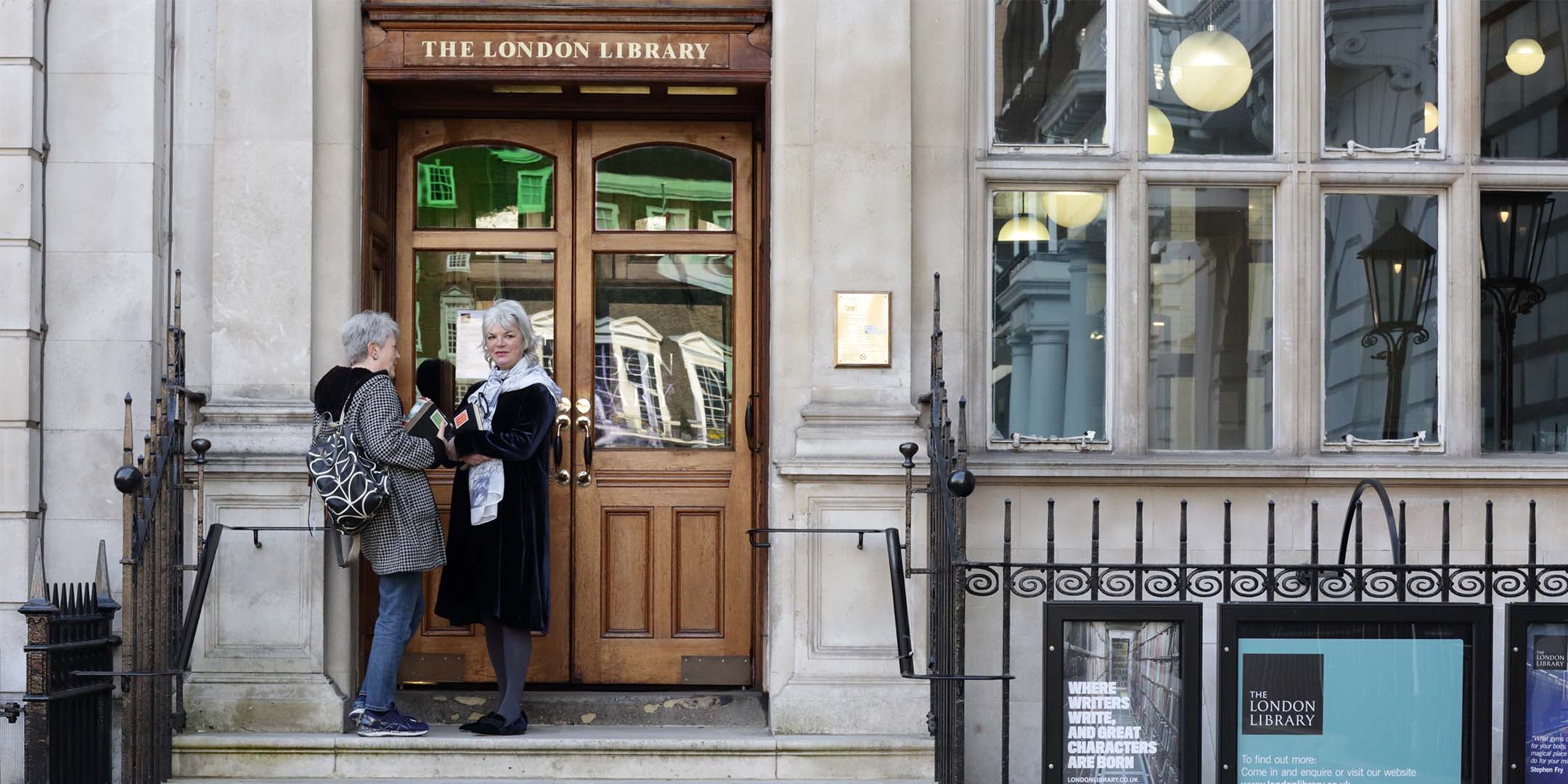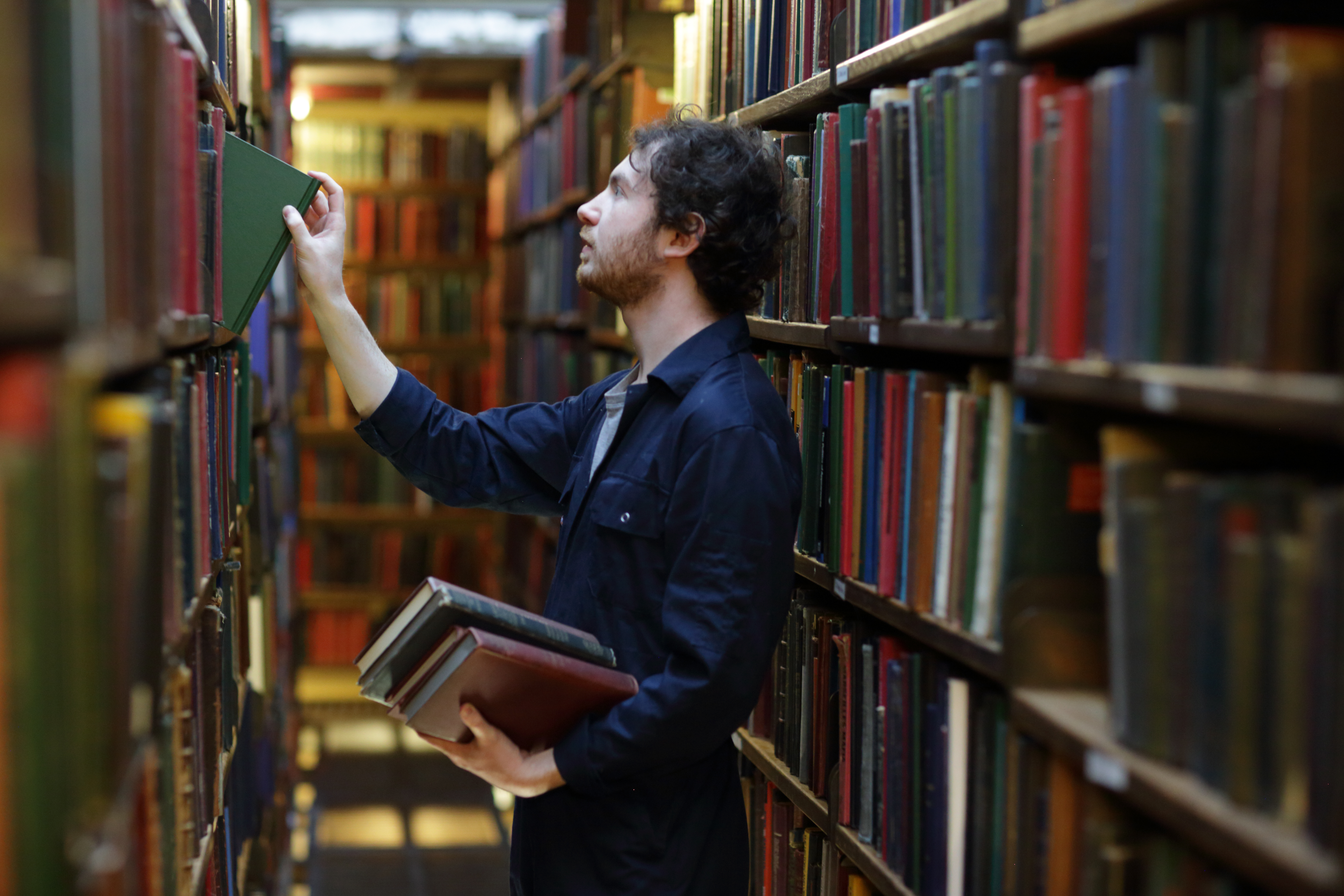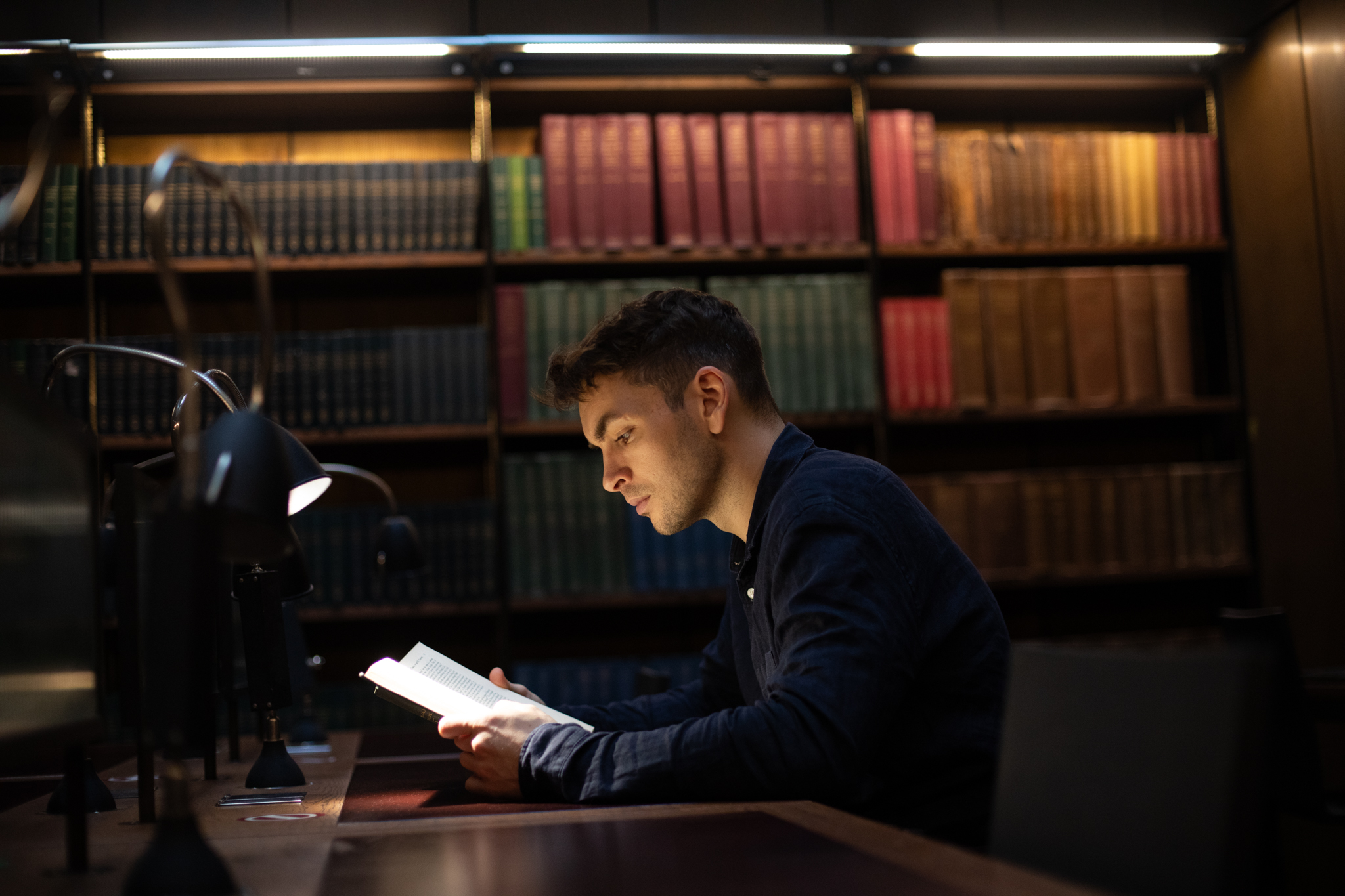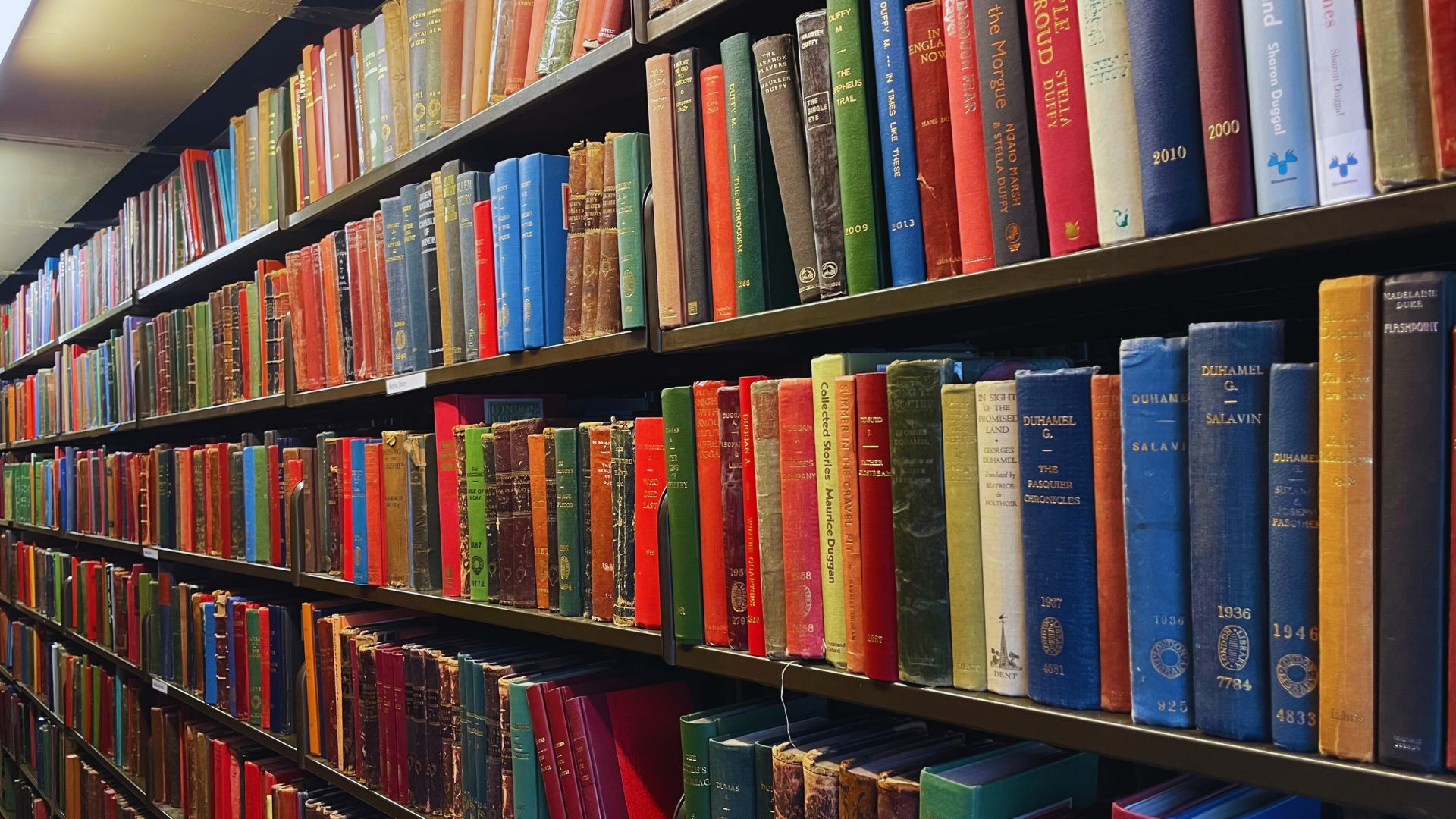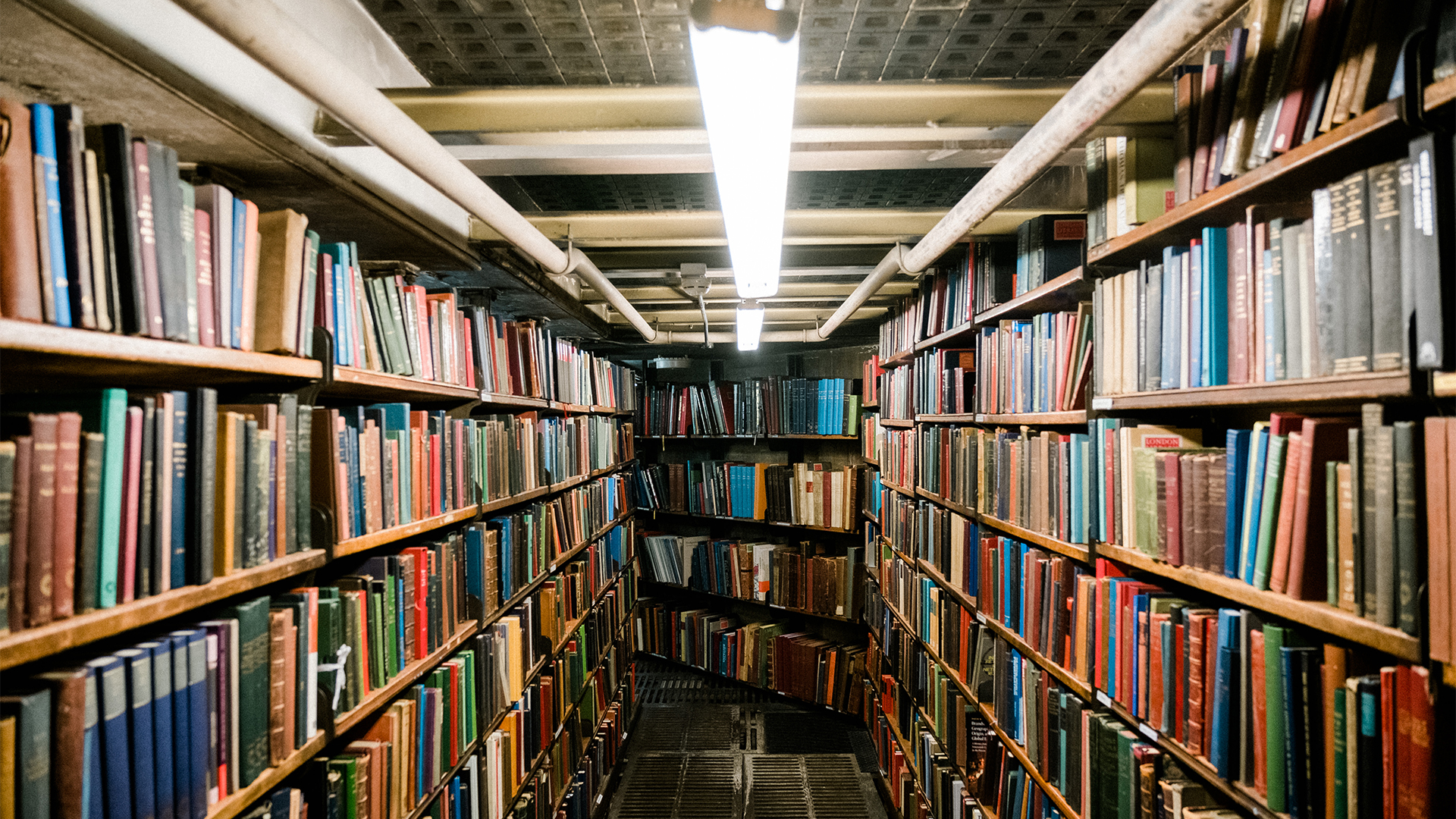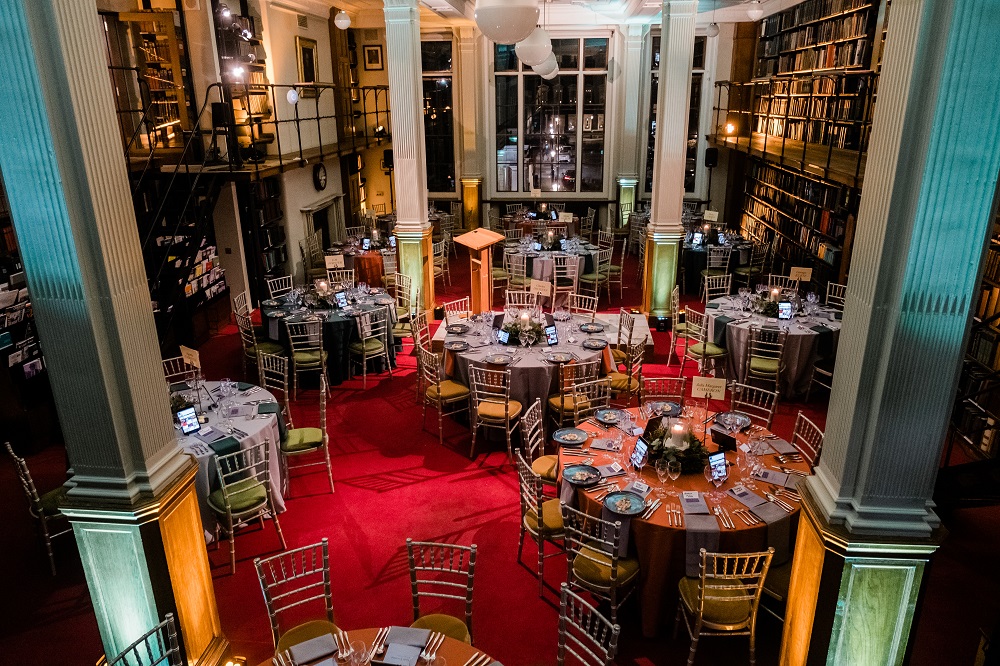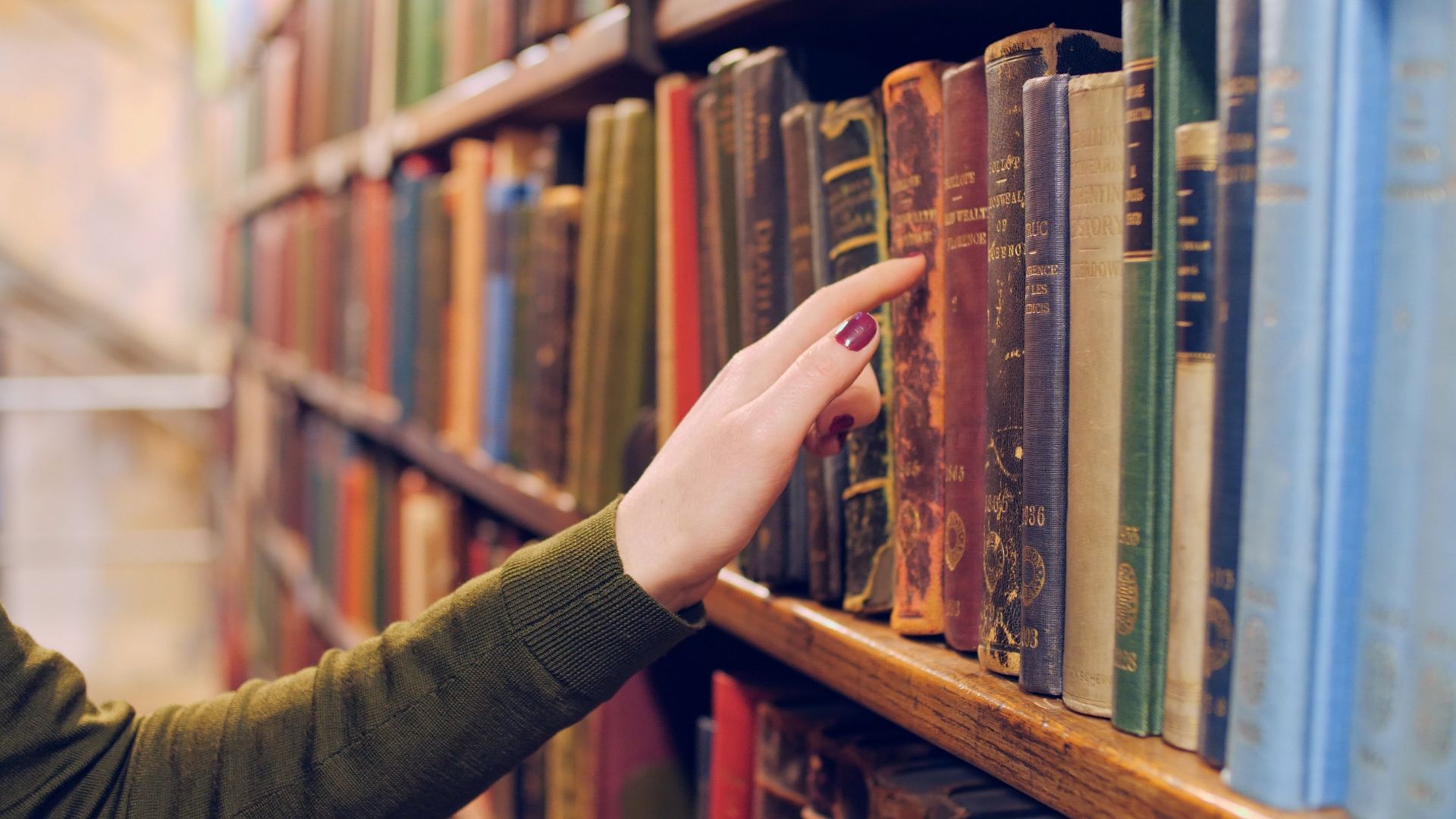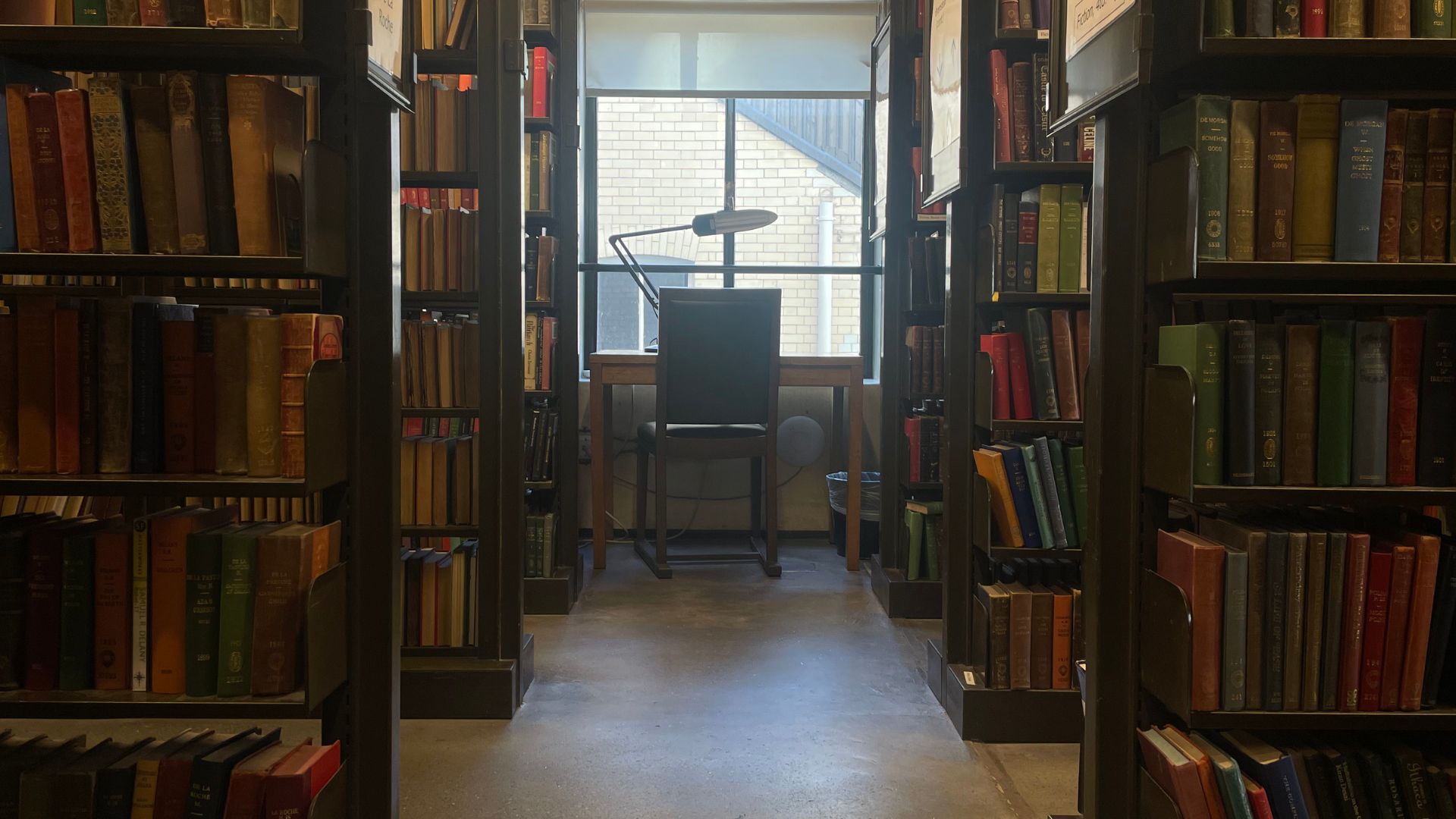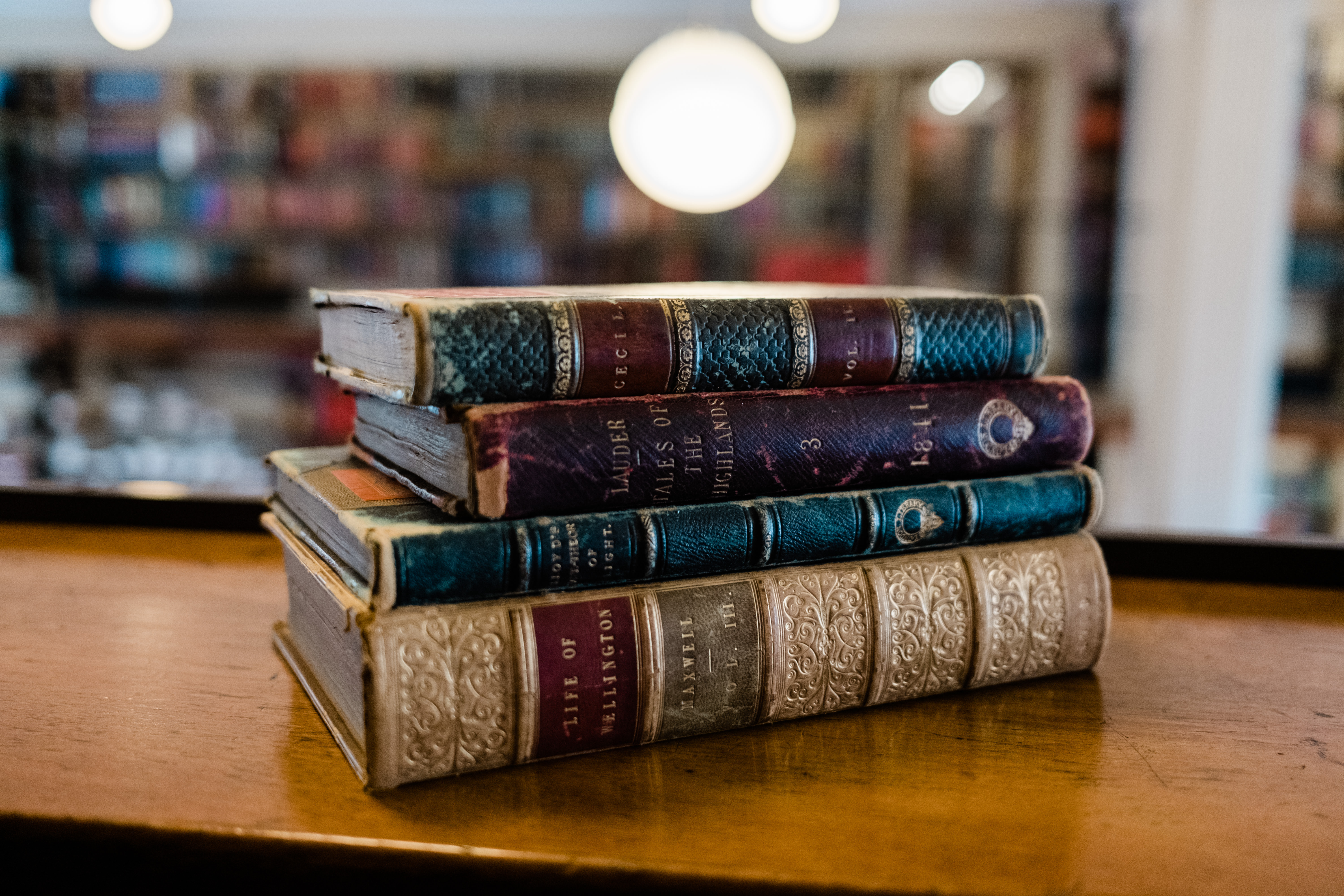By Anna Gonzalez-Fort
The Spanish literature collection is one of the largest foreign language literature collections in the Library and is actively added to with works by contemporary Spanish writers. Alongside the latest publications, in the open-access stacks members can find borrowable copies of a wide range of 20th, 19th and even some 18th century editions of Spanish novels and short stories, as well as poetry, drama and essays.
The collection spans from the 13th century with the “Cantar de Mio Cid” to the present day with authors such as Javier Marías or Almudena Grandes.
Editions of medieval Spanish literature held by the London Library cover works from the religious poetry of Gonzalo de Berceo to the works of the Infante Don Juan Manuel with his “El Conde Lucanor” or Juan Ruiz, Arcipreste de Hita with his “Libro de Buen Amor”. The transition of the medieval period to the Renaissance is also represented with the hybrid work between novel and theatrical play, “La Celestina”, by Fernando de Rojas.
From the period between the 15-17th centuries, known as the Spanish Golden Age due to the great flourishing in poetry, prose and drama, we can find poetic works such as the ones by Garcilaso de la Vega and San Juan de la Cruz; some examples of picaresque novel such as the “Lazarillo de Tormes” or “El Buscón” by Francisco de Quevedo, or what is considered to be the first modern European novel, “El ingenioso hidalgo don Quijote de la Mancha”, by Miguel de Cervantes, of which the library possesses several editions.
But the most remarkable collection from this Golden Age period that is held by the London Library is the Spanish Plays collection. It is one of the largest collections of Spanish plays outside of Spain, consisting of almost 1,500 editions mostly bound into over 100 pamphlet volumes. The collection contains printed editions of a wide variety of different kinds of play, including pastorals, the one-act religious pieces known in Spanish as autos, other religious dramas, full-length comedies, tragedies, and tragicomedies, operas, interludes (entremeses), and sundry examples of the other minor genres associated with the great age of the Spanish stage. Most of the leading figures from the 17th century are represented in the collection: Antonio Mira de Amescua, Juan Ruiz de Alarcón y Mendoza, Francisco de Rojas Zorrilla, etc. Of particular interest to researchers are the holdings of Lope de Vega (c. 100), Calderón de la Barca (180), and Tirso de Molina (51). The collection is particularly rich in rare eighteenth-century Lope sueltas.
The 18th century saw the Age of Enlightment with the essays of Gaspar Melchor de Jovellanos and the theatre of Leandro Fernández de Moratín, which lead to the Romanticism and the Realism of the 19th century with authors such as José de Espronceda, Gustavo Adolfo Bécquer, José Zorrilla, Emilia Pardo Bazán and Benito Pérez Galdós, whose main works can be found at the library stacks.
A substantial part of the Spanish Literature collection at the London Library comes from the authors of the 20th century, both from the period pre-Spanish Civil War such as Antonio Machado, Federico García Lorca, Juan Ramón Jiménez and José Ortega y Gasset, and post-Spanish Civil War such as Camilo José Cela, Miguel Delibes, Gonzalo Torrente Ballester and Juan Marsé.
Numerous Spanish books were bequeathed to the London Library by R. B. Cunninghame Graham in 1936. He was a Scottish politician, writer, journalist and adventurer of Spanish origins (his grandmother was a Spanish noblewoman), who was strongly connected to Spain and Latin America throughout his life. The books were donated in memory of his wife, by whom the books were collected in Spain.
It is worth pointing out that the library also collects works published in the other official languages of Spain: Catalan (which can be found under the separate shelfmark L. Catalan &c.), Basque (under the separate shelfmark L. Basque) and Galician. On the other hand, all works by and about Latin American authors who write in the Spanish language are also classified as part of the Spanish Literature collection.
The Spanish Literature collection has been fully transferred to the Library’s online catalogue as part of the Retrospective Cataloguing Project, and therefore it is searchable on the Library’s online catalogue.
Spanish translation
La colección de literatura española es una de las mayores colecciones en lengua extranjera que se encuentran en la biblioteca, la cual es activamente ampliada con obras de escritores españoles contemporáneos. Junto a las últimas publicaciones, los usuarios de la biblioteca pueden encontrar ejemplares prestables de un amplio abanico de ediciones de novelas y relatos cortos en español del siglo XX, XIX e incluso XVIII, así como poesía, teatro y ensayos.
La colección abarca desde el siglo XIII con el “Cantar de Mio Cid” hasta la actualidad, con autores como Javier Marías o Almudena Grandes.
Los ejemplares de literatura medieval española que se pueden encontrar en la London Library incluyen obras desde la poesía religiosa de Gonzalo de Berceo hasta las obras del Infante Don Juan Manuel con su “El Conde Lucanor” o Juan Ruiz, Arcipreste de Hita con su “Libro de Buen Amor”. La transición del periodo medieval al Renacimiento también está representada con la obra híbrida entre novela y teatro “La Celestina”, de Fernando de Rojas.
Del período entre los siglos XV y XVII, conocidos como el Siglo de Oro debido a la gran proliferación de la prosa, la poesía y el teatro, podemos encontrar obras poéticas como las de Garcilaso de la Vega y San Juan de la Cruz; algunos ejemplos de novela picaresca como el “Lazarillo de Tormes” o “El Buscón” de Francisco de Quevedo, o la que está considerada como la primera novela europea moderna, “El ingenioso hidalgo don Quijote de la Mancha”, de Miguel de Cervantes, de la cual la biblioteca posee varias ediciones.
Pero la colección más destacada del periodo del Siglo de Oro que se puede encontrar en la London Library es la colección de Teatro Español. Se trata de una de las más grandes colecciones de obras de teatro español fuera de España, y consiste de casi 1500 obras, la mayor parte de las cuales encuadernadas en unos 100 volúmenes facticios. La colección contiene ediciones impresas de diferentes tipos de obra, incluyendo pastorales, autos sacramentales, comedias, tragedias y tragicomedias, operas, entremeses y ejemplos diversos de otros géneros menores relacionados con la gran época del teatro español. La mayoría de los principales autores del siglo XVII están representados en la colección: Antonio Mira de Amescua, Juan Ruiz de Alarcón y Mendoza, Francisco de Rojas Zorrilla, etc. De particular interés para los investigadores son los fondos de Lope de Vega (c. 100 obras), Calderón de la Barca (180) y Tirso de Molina (51). La colección es particularmente rica en raros ejemplares de sueltas de Lope de Vega.
El siglo XVIII vio la época de la Ilustración con los ensayos de Gaspar Melchor de Jovellanos y el teatro de Leandro Fernández de Moratín, que llevaron hasta el Romanticismo y el Realismo del siglo XIX con autores como José de Espronceda, Gustavo Adolfo Bécquer, José Zorrilla, Emilia Pardo Bazán y Benito Pérez Galdós, cuyas principales obras se pueden encontrar en las estanterías de la biblioteca.
Una gran parte de la colección de literatura española en la London Library proviene de los autores del siglo XX, tanto del periodo anterior a la Guerra Civil española como Antonio Machado, Federico García Lorca, Juan Ramón Jiménez y José Ortega y Gasset, como posteriores a la Guerra como Camilo José Cela, Miguel Delibes, Gonzalo Torrente Ballester y Juan Marsé.
Numerosos libros en español fueron legados a la London Library por R. B. Cunninghame Graham en 1936. Éste fue un político, escritor, periodista y aventurero escocés de origen español (su abuela era una dama de la nobleza española), que estuvo fuertemente ligado a España y América Latina a lo largo de toda su vida. Los libros fueron donados en memoria de su mujer, la cual recolectó los libros en España.
Es importante señalar que la biblioteca también adquiere obras publicadas en las otras lenguas oficiales de España: catalán (que pueden encontrarse bajo la signatura L. Catalan Lit. &c.), vasco (bajo la signatura L. Basque) y gallego. Por otra parte, todas las obras de y sobre autores latinoamericanos que escriben en español también están clasificadas dentro de la colección de literatura española.
La colección de literatura española ya ha sido transferida en su totalidad al catálogo en línea de la biblioteca en el marco del Proyecto de Catalogación Retrospectiva, y por tanto se puede buscar en el catálogo de la biblioteca.

